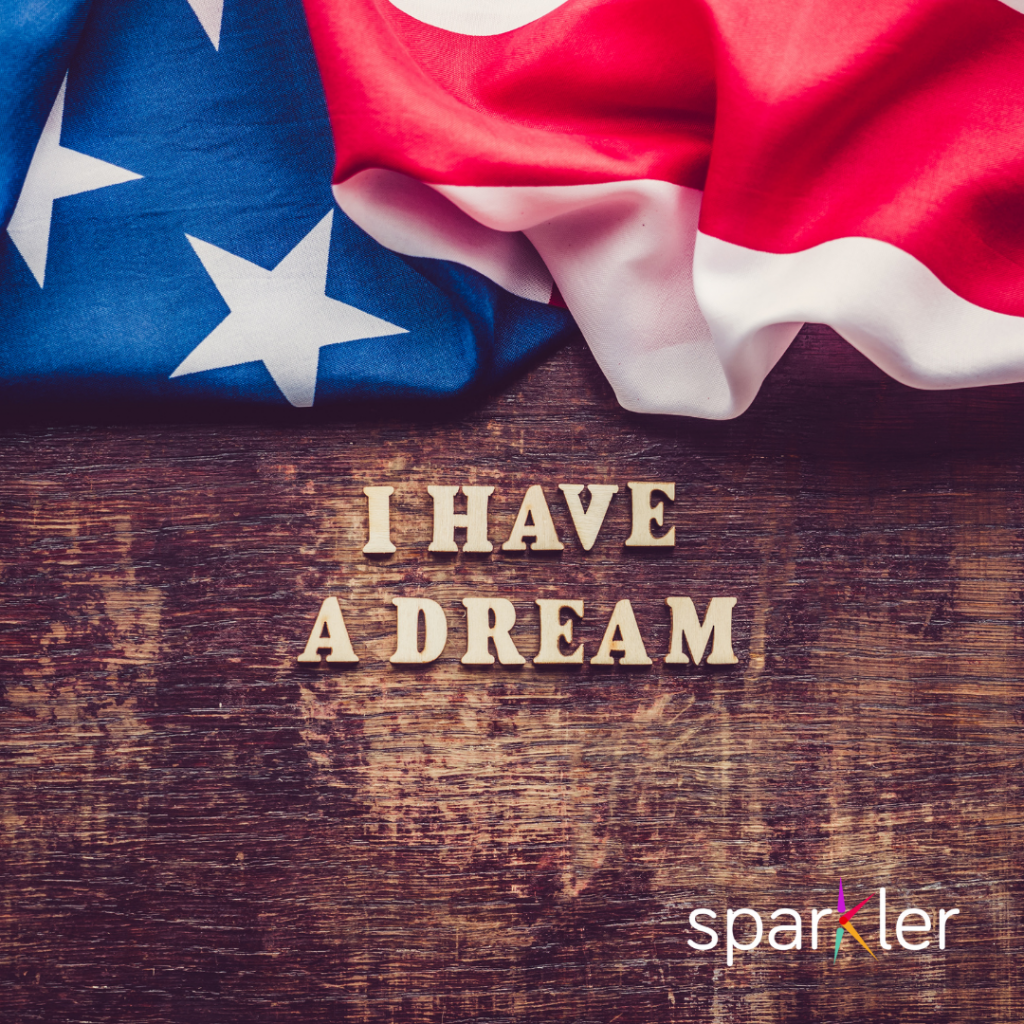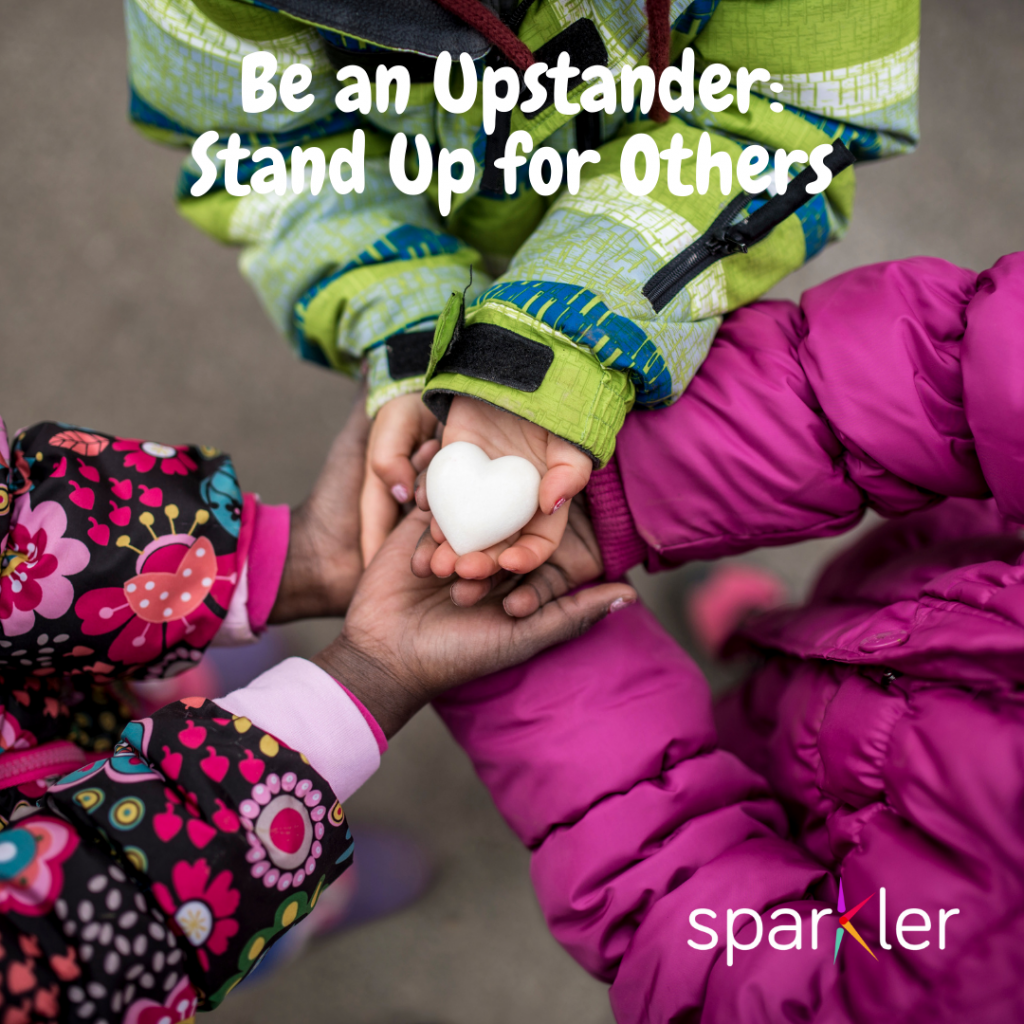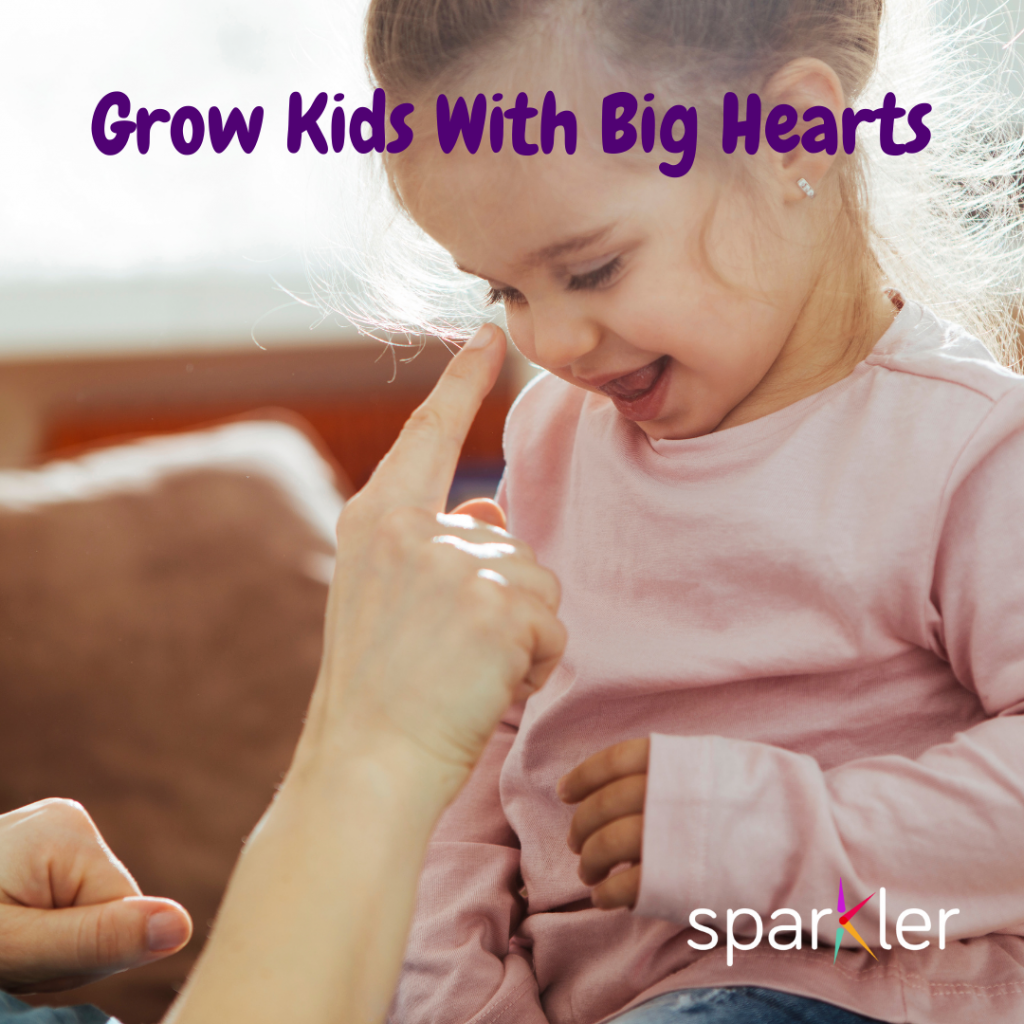Featured Content For January
Playful activities that help build social and emotional skills should be a part of every early childhood experience, especially right now — when routines and normal social interactions have been interrupted for many families.
With Martin Luther King, Jr. Day coming up, Sparkler is featuring activities focused on growing children’s mental health and social-emotional learning to help families raise young upstanders who help make the world a better place.
Play to Honor MLK Day and Raise Young Upstanders

- Trust Steps: Take your child on a trust walk, inspired by the MLK quote, “Faith is taking the first step even when you don’t see the whole staircase.” Why? Taking a trust walk with children is a classic way to build trust and explore perception.
- Mover: Inspired by the MLK quote, “If you can’t fly then run, if you can’t run then walk, if you can’t walk then crawl, but whatever you do, you have to keep moving forward.” Why? Act out Dr. King’s words to exercise big muscles, practice persistence, and even strengthen memory skills.
- The “NO” Song: Replace the lyrics of a familiar song with every toddler’s favorite word. Why? Singing The NO Song is a fun way for children to practice advocating for themselves (a first step towards becoming an upstander) and practice self-regulation.
Help Children Grow Up to be Upstanders

Upstanders are brave people who stand up and take action when they see something that isn’t right or fair. People who help make big societal changes (like Rosa Parks) are upstanders, and so are kids who stand up for friends. When “upstanders” see something that isn’t right or fair, they stand up rather than just ignoring the problem — which is what a “bystander” does.
Learn More: Listen to the Little Kids, Big Hearts Podcast
Help Families Support Social and Emotional Learning
For Babies (Birth-1.5)
- Raspberries: Blow raspberries to tickle baby’s belly. Why? Connecting with your child will boost your mood and theirs. Plus, you can practice responding to each other’s emotions.
- Copycat: Imitate one another’s facial expressions. Why? Imitating your facial expressions is a precursor to developing empathy.

- Feelings Mirror: Watch your reflections express different emotions. Why? Learning the names of different emotions will help your child learn to identify and share their feelings.
- Sunshine In A Bottle: Make a sensory bottle the color of sunshine. Why? Sensory bottles are a great tool to help children self-regulate and calm their emotions.
- Punching Pillow: Make a safe place to express big feelings. Why? A punching pillow (or bag) offers children a way to express the negative feelings like aggression, anger or frustration that everyone experiences.
Providers: How YOU Can Share Sparkler Content with Families
Parents can find hundreds of playtime activities in Sparkler to fuel learning on the go. Help your families find this month’s featured activities. Suggest these fun activities to the parents of babies, toddlers, and littles to help families make playing part of their daily routines!
If you sign into the Sparkler dashboard, you can visit the Library to find and share these activities and tips to individual parents or groups of families. (If you need a refresher on how to use the Library to share content with families, please watch our short webinar.)

